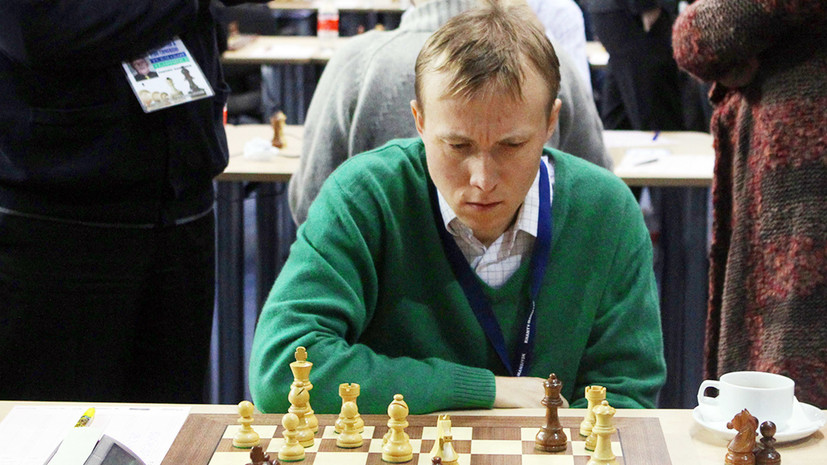Doping scandals are an infrequent occurrence of chess. However, just such a case, although not directly related to the use of prohibited drugs, occurred at the World Cup, which started on September 9 in Khanty-Mansiysk.
In the first round of the tournament, the famous Ukrainian chess player Ruslan Ponomaryov lost to 17-year-old Russian Andrei Esipenko with a total score of 0.5: 1.5. After an unexpected defeat, which, in accordance with the regulations, means stopping the fight for the World Cup main trophy, the 2002 and 2003 FIDE world champion wrote a post on his Twitter page in which he accused the doping officers of alleged failure to distract him from rest after the first batch.
2/2 But after 1st game I spent literally 2 hours from 19:57 till 21:56 for the doping test with Rusada hired by FIDE instead of resting and prepare for the 2nd game. Why so long? Why it was not WADA? Was I randomly selected ?! I hope to play better soon.
- Ruslan Ponomariov (@Ponomariov) September 11, 2019The grandmaster noted that he does not relieve himself of responsibility for not the best game, but he cannot deny that factors that did not depend on him influenced the situation.
“After the first batch, instead of resting and preparing for the second, I literally spent two hours - from 19:57 to 21:56 - spent on a doping test the hired FIDE RUSADA. Why so long? Why wasn't WADA doing this? Was I randomly selected? I hope that my game will improve soon, ”wrote Ponomarev.
Soon, the Deputy Director General of RUSADA Margarita Pakhnotskaya responded to the statement of the Ukrainian. She denied all allegations against the organization, explaining that WADA does not test athletes in such competitions, instead signing a contract with local anti-doping organizations.
“Next - the time taken to test depends on the characteristics of the athlete’s body and its urinary system. We can’t speed up the process in any way, ”Takhnitskaya quotes TASS.
In addition, she talked about the procedure for selecting athletes for testing for the presence of prohibited drugs in the body.
“I declare with full responsibility that Ponomarev was tested on a random sample, which was carried out in the presence of a FIDE delegate. The entire procedure was carried out strictly in accordance with the international standard for testing and investigations of WADA, ”concluded the deputy head of RUSADA.
FIDE representatives did not stand aside from the incident. They confirmed the words of Pakhnotskaya that the doping test procedure was carried out in accordance with international regulations, which, in turn, eliminates the presence of a biased attitude towards any of the participants in the tournament.
“The reasons why Mr. Ponomarev passed the test for two hours are purely psychological in nature. The process did not stop for a minute due to the fault of supervisors or organizers. The whole procedure was carried out with the personal presence of Dr. Marape Marape (head of the FIDE Medical Commission. - RT ), and he answered all Ruslan's questions, including regarding the selection of athletes for doping control, ”the statement said on the official FIDE page on Twitter.
https://t.co/Bl7I3Aob3Ppic.twitter.com/jaWO5pXO2m
- International Chess Federation (@FIDE_chess) September 12, 2019The defeat of the Ukrainian grandmaster to the less experienced Esipenko became one of the main sensations of the first round of the World Cup. In the next round, the Russian also expects a difficult opponent - the eminent compatriot Peter Svidler, who at the start of the tournament defeated the Cuban Carlos Albornos with a score of 1.5: 0.5.
According to the young chess player, he did not expect that he would be able to beat Ponomarev.
“This match was more like fast chess. I thought that there would be two draws if I did not lose, but I managed to win. Then the task was not to yield, it seemed to have played well. I would like to go as far as possible, but here it’s impossible to guess, a lot depends on luck, ”the Russian said.
The World Cup, in which 128 grandmasters participate in total, will end on October 4. According to its results, two finalists will have the opportunity to participate in the tournament of candidates for the chess crown in 2020.
Interestingly, FIDE became a full-fledged member of the anti-doping movement only in 2001 after it joined the International Olympic Committee (IOC). Since that time, participants in all competitions held under the auspices of the organization are forced to undergo checks for the presence of prohibited drugs.
One of the most notorious cases of anti-doping rule violation occurred at the 2008 World Chess Olympiad. The Ukrainian grandmaster Vasily Ivanchuk was so annoyed by the defeat that, contrary to all the rules, he left the room in a run, not paying attention to the doping officer who came to conduct the test. This action was regarded as a refusal to undergo the procedure and admission of guilt.
It is worth noting that later the chess player apologized for his act, the FIDE went to meet him, and the situation was settled.

